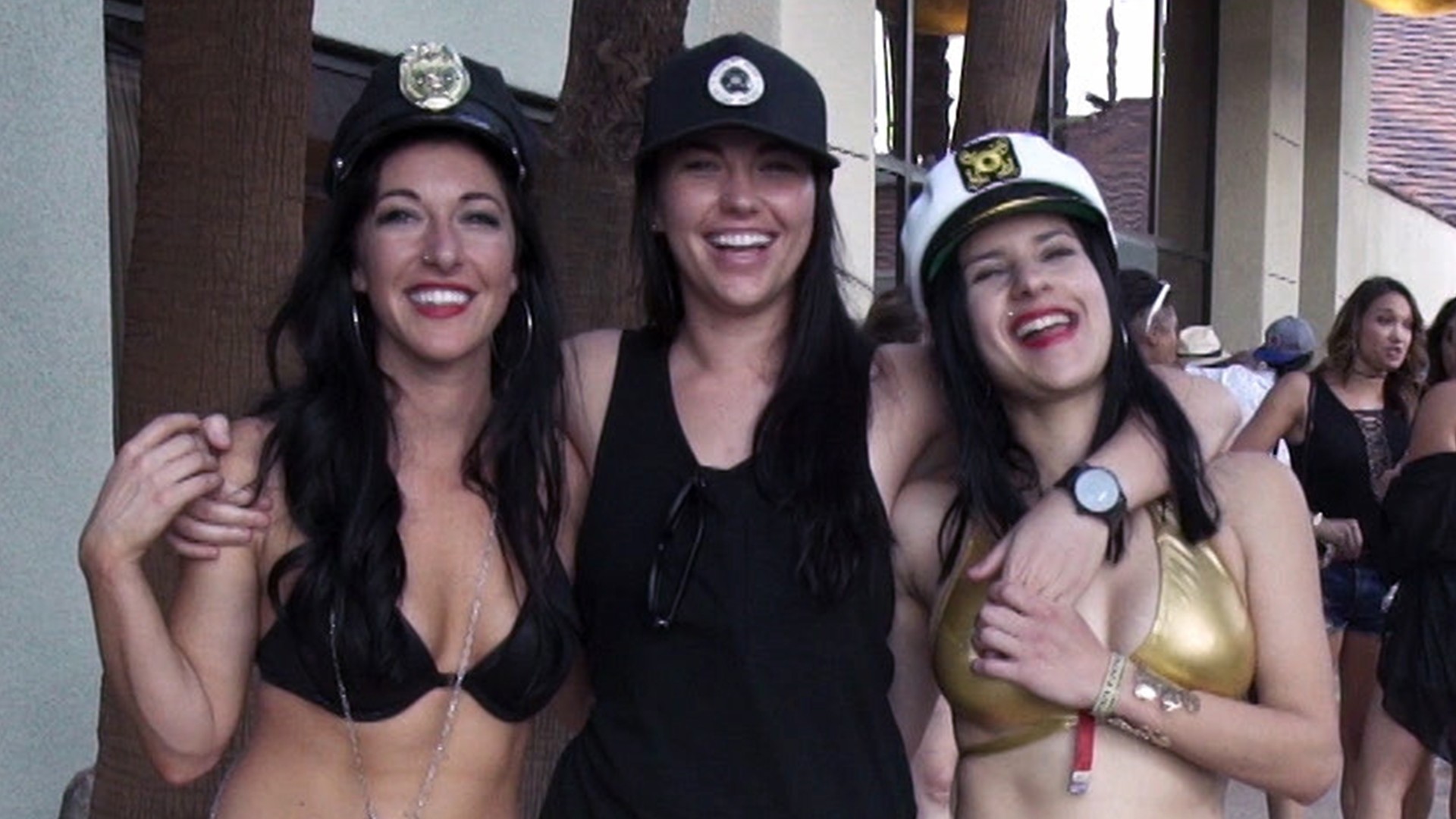Actor Nelsan Ellis died from complications related to heart failure on Saturday. Best known for his portrayal of Lafayette Reynolds in HBO's True Blood, the Juilliard graduate brought one of the first authentic portrayals of a gay character of color to the small screen. For me, a gay black boy who grew up in South Carolina, Lafayette's visibility was especially meaningful. His work shined a light on the intersectionality of my own struggles.
Advertisement
Born in Illinois in 1977, Ellis was raised in Alabama by his relatives until age 15. From there he cycled through Chicago, joined and dropped out of the Marines, before finally starting his studies. He attended Illinois State University and Juilliard. While at Juilliard, he wrote Ugly, a semi-autobiographical play that ended up winning him the Lincoln Center's Martin E. Segal Award. That accolade would eventually be joined by two Satellite awards, two NAACP Image Award nominations, and an ensemble SAG Award nomination—all for his seven seasons as Lafayette.For many, the character of Lafayette Reynolds is best boiled down to one pivotal scene. That clip, shared widely on social media in the wake of Ellis's death, shows a group of rowdy and homophobic rednecks coming into Merlotte's, the bar where Lafayette works as a short order cook. The group orders a round of burgers. One burger gets sent back to the kitchen with a comment to the waitress that the burger "might have AIDS," a direct shot at Lafayette's sexuality. In the next second, Lafayette's head cocks, he slips off his dangling earrings, and makes his way out of the kitchen to confront the situation himself. The resulting altercation proves he is both intellectually and physically superior to the three men.That was the first scene I saw of True Blood, a few years after the show began to air in 2008. Growing up in a lower-income, religious household, my family didn't have HBO. And even if we had, a show about vampires and witches would have been forbidden. But to see an on-camera reenactment of the "my momma might have raised a faggot, but she ain't raise no punk" maxim was moving and necessary. In the weeks to follow, I made frequent visits to my college's computer room, bingeing on every minute of True Blood I could get access to online.
Advertisement
From the first episode, Lafayette's sexuality and confidence were apparent. He wore his do-rags as if they were long flowing hair. It was a nod to cool black masculinity, but he appropriated it in his own feminized way. I did similar things growing up, sometimes strutting around my room, whipping around the towels I had wrapped around my head. And though I didn't have the hutzpah to wear false lashes and eyeshadow like the Bon Temps resident, his occasionally dainty, sometimes delicate mannerisms always made me smile with familiarity.Once, walking down the hall in middle school, I heard my mother scream out my name from three classrooms away. I froze. My mom, who worked at my school, had caught me "switching" on the way to the lunchroom. It wasn't a conscious thing. It was just the way I walked when I wasn't thinking about it. And it wasn't much different from the way Lafayette walked in the show, but there was hell to pay for me. So to see him exist in a world where he had the confidence to just be himself was liberating. Over the years of watching the show, I drew so many correlations between Lafayette's life and my own. Lafayette's relationship with his family was never a large part of his storyline. But in little components, it mirrored mine. His cousin Tara, who had a loving, protective, and honest, two-way relationship with him, was similar to my younger sister. Tara's mother, his aunt, once remarked that the "spirit of homosexuality" was on him. This cold statement embodied too many of my family members to name.
Over the years of watching the show, I drew so many correlations between Lafayette's life and my own. Lafayette's relationship with his family was never a large part of his storyline. But in little components, it mirrored mine. His cousin Tara, who had a loving, protective, and honest, two-way relationship with him, was similar to my younger sister. Tara's mother, his aunt, once remarked that the "spirit of homosexuality" was on him. This cold statement embodied too many of my family members to name.

Advertisement
In episode three of season one, Tara walks into Lafayette's home as a trick is walking out and asks her cousin, "You're a prostitute now?" He just smiles at her and says, "I'm an entrepreneur." It's a story told by many impoverished people of color who have to resort to sex work or other illegal activities to make ends meet. Breaking the law, a law that was never intended to protect or help you, in order to help yourself is all too familiar. While I was privileged to not have to make some of those choices, I certainly know people who have.When it came to Lafayette's suitors, I could also relate. None of his lovers were black men. Instead, his Johns were generally older and white. His beau from season one was Mexican, and his final love interest was also a white man. And while today that might make some accuse the character of internalized racism, I also romanced with white men when I was young and living in the South. There's no doubt that Lafayette's Johns fetishized his black body. But those white bodies promised an escape from the circumstances he was born into.And it was because of Lafayette's final white lover, a vampire named James, that another less discussed but incredibly moving scene took place. In episode five of season seven, James and Lafayette are discovered having sex by James's girlfriend at the time. The episode features a moment of true, almost universal emotion for queers. "Everybody else in this fucking town is falling in love and getting engaged and having babies," he yells at James's girlfriend. "Has it ever fucking occurred to you that Lafayette, that queen that makes all you white heterosexuals laugh and feel good about yourself, has it ever fucking occurred to you that maybe I want a piece of happiness too?" The silence that follows makes it clear that the thought had not.
Advertisement
The thing is, while Lafayette was a proud gay man, Ellis, the actor behind the character, was a straight man with a wife and a son. Coming into the role he admitted he felt awkward and that the original script was too much of a cliche of a queer-as-drag stereotype to be believable. But between combining inspirations from his mother as well as rehearsing with a gay friend, he brought nuance, life, and authenticity to the role.Ellis was also an ally. He took on the role of Lafayette at a time before it was common for straight actors to embody queer roles in a real way. In fact, a co-star dropped out of the show when he found out that his character was bisexual and would become intertwined with Lafayette. The decision was unprofessional to Ellis, who said as much in an interview with Vulture. "I just think that, you're an actor. You're an actor on a show that's True Blood. We're all sitting there going, 'You quit your job because… really?' I'm just… I'm over him," he said. "You make a statement, a big statement, when you go, 'I don't want to play this part because it's gay' If you have a child, if you have a son, and he comes out as gay, what are you going to do? If you have a daughter who comes out gay…? You just made a statement, and it has ripple effects."Through his portrayal of Lafayette, Ellis created his own ripple effects. He leaves behind a body of work that has touched the lives of many queer people. On True Blood, he proved that not only was a confluence of femininity and machismo valid, but that a limp wrist could just as easily turn into a balled fist. And for me, more than anything else, his depiction of Lafayette Reynolds was a reminder that my own story and the stories of people like me are worth telling truthfully, and authentically, just like anybody else.Follow Mikelle Street on Twitter.
